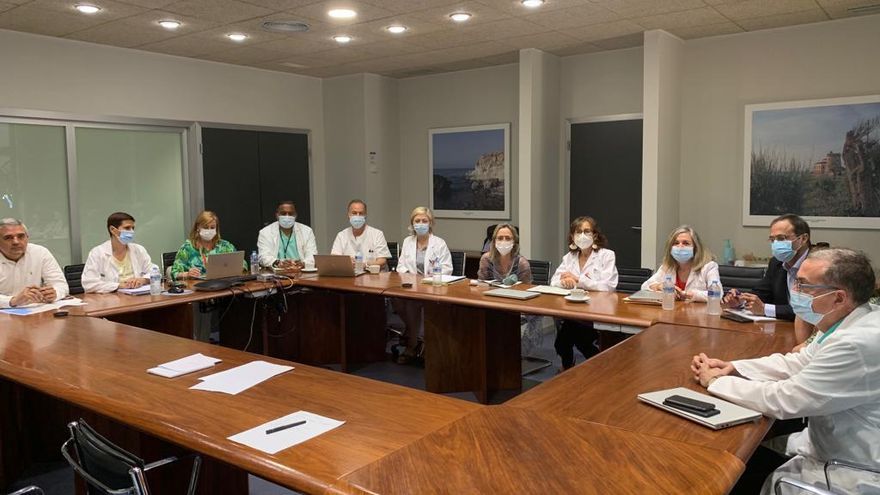Following months of criticism from both patients and healthcare professionals about the failings of services at Torrevieja Hospital, following the return of the facility to public management, the Health Department has launched what it is calling a “Shock Plan” to try and bring the levels of service back up to what they once were.
The Management, the Medical Directorate and the new care managers of the emergency service met at the centre with Mónica Almiñana, Undersecretary of the Ministry of Universal Health and Public Health, and Enrique Soler, Deputy Director General of Integrated Care Activity, with the aim of designing the execution of this Shock Plan that will enter into force immediately.
The meeting defended how recently, the Emergency Service of the University Hospital of Torrevieja incorporated a new Head of Service and a Head of Section, in addition to reinforcing the service in all its professional categories, expanding the hours and staffing of specialists in all the Continuous Care Points (PACs), hosted at local medical centres. Added to these measures is now the creation of a new quick care consultation without waiting, the provision of new special boxes for consultations, in addition to the involvement of different medical specialties from the centre itself.
On the other hand, the Ministry of Health and the centre’s management are working to support and strengthen medical specialists from other reference hospitals in the area, who can support healthcare activity at peak influxes of patients.
Since the incorporation of the department into public management, the workforce has gone from 1,043 to 1,793 workers, which represents an increase of 58%. In this way, the department’s management guarantees 100% care coverage for the population in key services such as emergencies, primary care, and hospitalisation.
In addition, the second floor of the centre will remain open at full capacity, something that was not usual in previous years, and the presence of key non-care support services will be maintained.
The number of professionals has also increased in Primary Care. The care strategy for this summer is focused on promoting urgent care throughout the Department with the 24-hour opening of the 6 Continuous Care Points (PAC). The integration of Primary and Specialised Care allows the PACs to be connected with the hospital, so that users can solve their health problems closer to home, without waiting.
The Emergency Service has incorporated professionals in all categories: 38 more nurses, going from 21 to 58 professionals, 8 more Auxiliary Nursing Care Technicians, going from 15 to 23 professionals, and 4 additional guards, going from 17 to 21 professionals. In addition, during the Holy Week period, two extra reinforcement guards were incorporated. The Emergency Service has incorporated 2 additional administrative professionals, going from 6 to 8 professionals.
Of course, many of the points from the “Shock Plan” have already been introduced, and yet this week alone there has been a barrage of complaints, including on social networks, driven largely by a previous campaign by the Plataforma Sanidad Excelente, which was born to defend the previous private company, Ribera Salud, and their management of the centre, which also gained the support of local representatives.
Among other complaints, one was made public by an emergency doctor who works at the centre in which it was said that “patients die unhappily in the corridors” after more than eight hours of waiting. The mayor of Torrevieja, Eduardo Dolón also once again denounced the situation as “unsustainable” and that he had warned about the lack of human resources, which focuses on the lack of doctors, to cover the shifts and the delays of five, ten and fifteen hours in the emergency room with only nursing assistance in triage.





